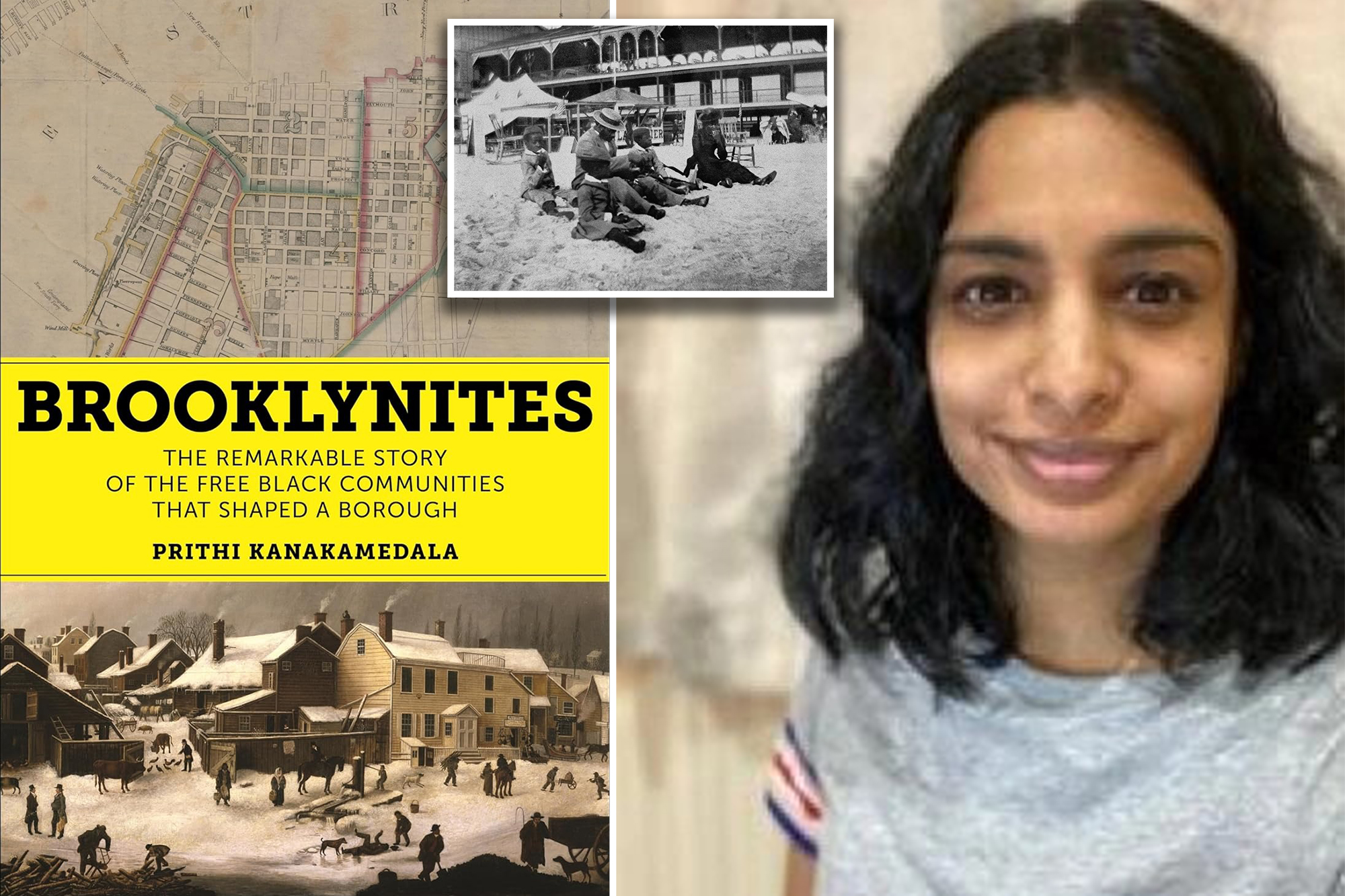Long before it became the go-to borough for hipsters and commuters, Brooklyn was once America’s third largest city, independent and separate from Manhattan and the City of New York, explains Prithi Kanakamedala in “Brooklynites: The Remarkable Story of the Free Black Communities that Shaped a Borough” (NYU Press).
But it was also a place where, at the end of the American Revolution, one in three black inhabitants were enslaved, a statistic that, inevitably, drove a wave of activism in the years to come.
“Brooklyn was a slaveholding capital,” writes Kanakamedala. “And it was within this context that a free Black community at the town’s most northwestern tip would begin to contour the landscape and imbue the land with the radical possibilities of freedom.”
Prithi Kanakamedala’s new book “Brooklynites” reveals that the borough was once a full one-third black.
Told through the stories of four ordinary families from Brooklyn’s nineteenth-century Black community — the Crogers, the Hodges, the Wilsons, and the Gloucesters — it reveals not just of their extraordinary lives but also how neighborhoods like Fort Greene, Williamsburg and DUMBO became hotbeds for social justice movements, laser-focused on a new emancipated future.
As Bronx Community College professor Kanakamedala writes, these urban villages were pivotal in the fight for emancipation being “part of a sophisticated Northern anti-slavery space rooted in, and integral to, Brooklyn’s own steady growth.”
In “Brooklynites,” Kanakamedala reveals the systemic and structural racism these families encountered as they fought for freedom in the face of intimidating odds.
Even after the Revolution, it took three decades for New York to formally end slavery — Kanakamedala calls it a “gradual emancipation” — with members of the Black community still limited to manual labor.
“Their lives offer valuable lessons on freedom, democracy, and family — both the ones we’re born with and the ones we choose,” she writes. “Their powerful stories continue to resonate today.”
“Brooklynites” also considers the long-lasting impact of families like these on New York’s most populous borough.
“This is a story of land, home, labor, of New Yorkers past, and the legacy they left us,” writes Kanakamedala.
“This is the story of Brooklyn.”
Checkout latest world news below links :
World News || Latest News || U.S. News
The post Brooklyn’s remarkable and unknown Black history revealed: ‘Slaveholding capital’ appeared first on WorldNewsEra.

